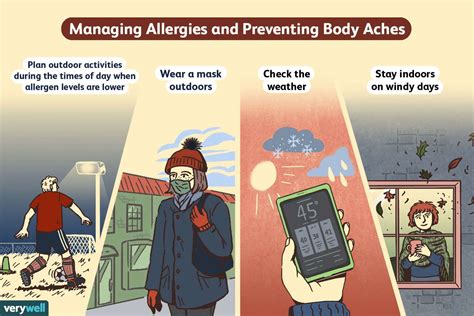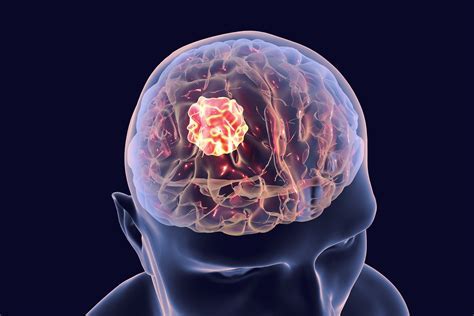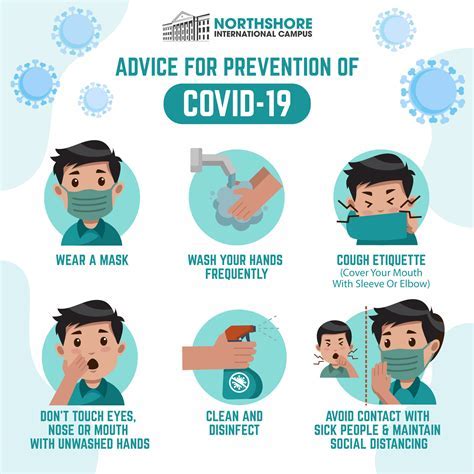Intro
Waking up with body aches can be a frustrating and debilitating experience, especially when there's no clear indication of what's causing the discomfort. The absence of a fever often leads people to believe that their condition isn't serious, but body aches without fever can be a symptom of various underlying health issues. Understanding the potential causes and taking appropriate measures can help alleviate the discomfort and address the root cause of the problem. In this article, we will delve into the world of body aches without fever, exploring the possible reasons behind this condition and discussing ways to find relief.
Body aches can manifest in different forms, from mild soreness to severe pain that interferes with daily activities. The fact that there's no fever present can make diagnosis more challenging, as fever is often a key indicator of infection or inflammation. However, the lack of fever doesn't necessarily mean that the body isn't fighting off an underlying issue. It's essential to pay attention to other symptoms, such as fatigue, headaches, or digestive problems, as these can provide valuable clues about the cause of the body aches.
The human body is a complex system, and body aches without fever can be triggered by a wide range of factors, including lifestyle choices, environmental factors, and underlying health conditions. For instance, a person who engages in strenuous physical activity without proper warm-up or stretching may experience muscle soreness, while someone who works in a stressful environment may develop tension headaches or back pain. Additionally, certain medical conditions, such as fibromyalgia, arthritis, or hypothyroidism, can cause body aches without fever. By understanding the potential causes and seeking medical attention when necessary, individuals can take the first step towards finding relief and improving their overall well-being.
Common Causes of Body Aches Without Fever

Body aches without fever can be caused by various factors, including:
- Overexertion or muscle strain
- Poor posture or body mechanics
- Stress and tension
- Lack of sleep or fatigue
- Nutritional deficiencies or dehydration
- Underlying medical conditions, such as fibromyalgia or arthritis
- Certain medications or supplements
- Environmental factors, such as exposure to toxins or allergens
It's essential to note that this is not an exhaustive list, and body aches without fever can be caused by a combination of factors. By identifying the underlying causes and addressing them, individuals can develop effective strategies to manage their discomfort and improve their overall health.
Understanding the Role of Stress and Tension
Stress and tension are common culprits behind body aches without fever. When we experience stress, our body's "fight or flight" response is triggered, causing our muscles to tense up and our heart rate to increase. This can lead to physical symptoms such as headaches, back pain, and muscle soreness. Additionally, chronic stress can weaken our immune system, making us more susceptible to underlying health issues that can cause body aches.To manage stress and tension, individuals can try various relaxation techniques, such as deep breathing, meditation, or yoga. Regular exercise, a balanced diet, and sufficient sleep can also help reduce stress levels and alleviate body aches. By prioritizing self-care and taking proactive steps to manage stress, individuals can reduce their risk of developing body aches without fever.
Diagnosing the Underlying Cause

Diagnosing the underlying cause of body aches without fever can be a challenging task, as the symptoms can be vague and non-specific. A thorough medical evaluation, including a physical examination, medical history, and laboratory tests, can help identify potential causes. In some cases, imaging studies, such as X-rays or MRIs, may be necessary to rule out underlying conditions, such as fractures or joint damage.
It's essential to work with a healthcare professional to determine the underlying cause of body aches without fever. By providing a detailed medical history, including information about lifestyle choices, environmental factors, and underlying health conditions, individuals can help their healthcare provider develop an accurate diagnosis and effective treatment plan.
The Importance of Lifestyle Modifications
Lifestyle modifications can play a crucial role in managing body aches without fever. By incorporating healthy habits, such as regular exercise, balanced diet, and sufficient sleep, individuals can reduce their risk of developing body aches. Additionally, stress-reducing techniques, such as meditation or yoga, can help alleviate tension and promote relaxation.Some lifestyle modifications that can help alleviate body aches without fever include:
- Engaging in regular exercise, such as walking or swimming
- Practicing stress-reducing techniques, such as deep breathing or meditation
- Getting sufficient sleep, aiming for 7-9 hours per night
- Eating a balanced diet, rich in fruits, vegetables, and whole grains
- Staying hydrated, drinking plenty of water throughout the day
- Avoiding triggers, such as certain foods or environmental factors, that can exacerbate body aches
By incorporating these lifestyle modifications, individuals can take proactive steps towards managing their body aches and improving their overall well-being.
Treatment Options for Body Aches Without Fever

Treatment options for body aches without fever depend on the underlying cause and severity of the symptoms. In some cases, over-the-counter pain relievers, such as acetaminophen or ibuprofen, may be sufficient to alleviate discomfort. However, if the body aches are caused by an underlying medical condition, prescription medications or alternative therapies may be necessary.
Some treatment options for body aches without fever include:
- Over-the-counter pain relievers, such as acetaminophen or ibuprofen
- Prescription medications, such as muscle relaxants or anti-inflammatory medications
- Alternative therapies, such as acupuncture or massage
- Lifestyle modifications, such as regular exercise, balanced diet, and sufficient sleep
- Stress-reducing techniques, such as meditation or yoga
It's essential to work with a healthcare professional to determine the most effective treatment plan for body aches without fever. By addressing the underlying cause and incorporating lifestyle modifications, individuals can find relief from their discomfort and improve their overall health.
The Role of Alternative Therapies
Alternative therapies, such as acupuncture or massage, can play a significant role in managing body aches without fever. These therapies can help reduce stress and tension, promote relaxation, and alleviate pain. Additionally, alternative therapies can be used in conjunction with conventional treatments, such as medication or physical therapy, to enhance their effectiveness.Some alternative therapies that can help alleviate body aches without fever include:
- Acupuncture: a technique that involves inserting small needles into specific points on the body to stimulate healing and relaxation
- Massage: a technique that involves manipulating soft tissue to promote relaxation and reduce muscle tension
- Chiropractic care: a technique that involves manipulating the spine and other joints to improve alignment and reduce pain
- Herbal supplements: such as turmeric or ginger, which have anti-inflammatory properties and can help reduce pain and inflammation
By incorporating alternative therapies into their treatment plan, individuals can take a holistic approach to managing their body aches and improving their overall well-being.
Preventing Body Aches Without Fever

Preventing body aches without fever requires a proactive approach to health and wellness. By incorporating healthy habits, such as regular exercise, balanced diet, and sufficient sleep, individuals can reduce their risk of developing body aches. Additionally, stress-reducing techniques, such as meditation or yoga, can help alleviate tension and promote relaxation.
Some strategies for preventing body aches without fever include:
- Engaging in regular exercise, such as walking or swimming
- Practicing stress-reducing techniques, such as deep breathing or meditation
- Getting sufficient sleep, aiming for 7-9 hours per night
- Eating a balanced diet, rich in fruits, vegetables, and whole grains
- Staying hydrated, drinking plenty of water throughout the day
- Avoiding triggers, such as certain foods or environmental factors, that can exacerbate body aches
By incorporating these strategies, individuals can take proactive steps towards preventing body aches without fever and improving their overall health.
The Importance of Self-Care
Self-care is essential for managing body aches without fever. By prioritizing self-care, individuals can reduce their stress levels, promote relaxation, and alleviate discomfort. Self-care activities, such as reading, listening to music, or taking a warm bath, can help individuals unwind and recharge.Some self-care activities that can help alleviate body aches without fever include:
- Reading a book or listening to music
- Taking a warm bath or shower
- Practicing yoga or meditation
- Getting a massage or spa treatment
- Spending time in nature, such as walking or hiking
By incorporating self-care activities into their daily routine, individuals can take a proactive approach to managing their body aches and improving their overall well-being.
What are common causes of body aches without fever?
+Common causes of body aches without fever include overexertion, poor posture, stress and tension, lack of sleep, nutritional deficiencies, and underlying medical conditions.
How can I diagnose the underlying cause of body aches without fever?
+To diagnose the underlying cause of body aches without fever, it's essential to work with a healthcare professional who can perform a thorough medical evaluation, including a physical examination, medical history, and laboratory tests.
What are some treatment options for body aches without fever?
+Treatment options for body aches without fever depend on the underlying cause and severity of the symptoms. Options may include over-the-counter pain relievers, prescription medications, alternative therapies, and lifestyle modifications.
In conclusion, body aches without fever can be a complex and challenging condition to manage. By understanding the potential causes, incorporating lifestyle modifications, and seeking medical attention when necessary, individuals can take proactive steps towards finding relief and improving their overall well-being. We encourage you to share your experiences and tips for managing body aches without fever in the comments below. Additionally, if you found this article helpful, please share it with others who may be struggling with similar issues. By working together and prioritizing our health and wellness, we can take a proactive approach to managing body aches and improving our overall quality of life.
